Keywords: Team Australia
There are more than 200 results, only the first 200 are displayed here.
-
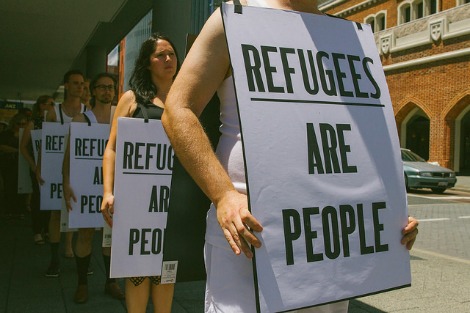
AUSTRALIA
- Kerry Murphy
- 05 February 2016
6 Comments
The practice of governments using the Parliament to change the law in order to win court cases is unfair, as only one party to a court case has the power to do this. The M68 case decided on Wednesday, which challenged the detention and transfer to Nauru of asylum seekers, was effectively won by the government because they changed the law retrospectively to make sure they would win. No retrospective fix will be possible for people who fled persecution only to face a punitive and hostile policy.
READ MORE 
-
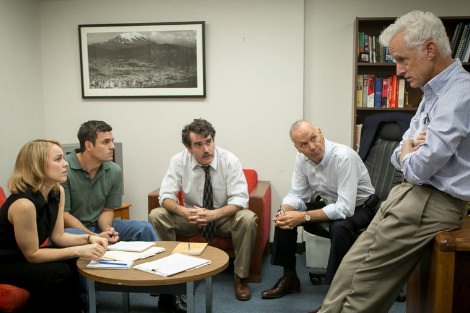
ARTS AND CULTURE
- Richard Leonard
- 28 January 2016
18 Comments
This is one of the angriest films you will ever see. In the Bible we hear about righteous anger, where God or humanity realises something is so wrong and sinful that 'holy anger' is the first and right response. At its best in the scriptures this anger leads to justice, making things right. Spotlight is an occasion for holy, righteous anger and every adult Catholic should see it.
READ MORE 
-

ARTS AND CULTURE
- Jim McDermott
- 28 January 2016
4 Comments
Not long ago a priest visiting from abroad told me that the story of Spotlight doesn't really apply to his country. 'We don't have that problem here.' It's a comment you get somewhat regularly from some parts of the world. Would that it could only be true. Without a much greater willingness on the part of the institutional Church to let itself be broken and changed by what we have learned since January of 2002, it's more likely a sign of disasters still to come.
READ MORE 
-

AUSTRALIA
- Frank Brennan
- 10 December 2015
I first met this Tony on my regular visits here to Darwin when he was working at the North Australian Aboriginal Legal Aid Service and then when he set up the mediation services under the auspices of Anglicare. In later years I knew him when he was your Anti-Discrimination Commissioner. He was a quiet, considered, gentle, strong and principled man. On Human Rights Day, it is only fitting that I honour Tony by offering some reflections on the architecture for human rights in Australia, on the contemporary human rights controversies, and on the way forward for better protection of the human rights of Aborigines and asylum seekers, two marginalised groups who had a special claim on Tony's sympathies.
READ MORE
-

RELIGION
- Frank Brennan
- 03 December 2015
The consideration of medico-legal problems in the public square of a pluralistic democratic society keeping pace with profound technological change is often marked by simplistic assertions, precluding considerations of comprehensive world views, whether religious or philosophical. It is now commonplace for doctors to be told to leave their consciences at the door, as their patients are consumers and they are suppliers and of course the market decides. Debates about law and policy are often resolved with simplistic assertions about individual rights and autonomy, with little consideration for the public interest, the common good, and the doctor-patient relationship. Even conscience is said to be a matter for contracting out. This evening I ask whether there are more compelling ways to resolve medico-legal dilemmas, while conceding a limited role for law in determining the range of acceptable answers.
READ MORE
-
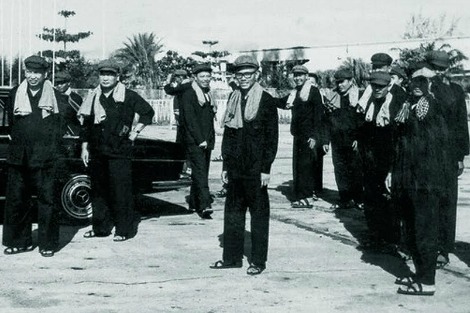
AUSTRALIA
- Michael Walter
- 11 November 2015
10 Comments
This photo is quite ordinary. It seems as though the men have just arrived somewhere, and have awkwardly posed for a camera. What is so haunting about this photo is the story of what these men would do. The man on the left is Pol Pot, leader of the Khmer Rouge. The man in the middle is Comrade Duch, the meticulous chief of Tuol Sleng Prison. In 50 years' time, what stories will be embedded in the ordinary photographs of today? What stories will be attached to ordinary photos of us?
READ MORE 
-

AUSTRALIA
- Andrew Hamilton
- 05 November 2015
10 Comments
What are spectators to make of Adam Goodes' challenge to racial prejudice? What are they to make of David Pocock's outspoken defence of the environment and criticism of coal mining, or of his and his partner's refusal to marry in solidarity with LBGT couples? They make space for us to reflect on our own response to large human questions. But that space also invites us to judge our own integrity. The opprobrium such role models meet may arise out of discomfort with unwelcome self-questioning.
READ MORE 
-

INTERNATIONAL
- Catherine Marshall
- 23 October 2015
15 Comments
Sissies are on their way out on British playgrounds. Guidelines produced by the Institute of Physics for the Department of Education recommend that teachers strongly discourage sexist language at school. While internet forums are replete with admonitions from members of the public furious at the erosion of so-called free speech, the guidelines are a welcome tool in the long and exhausting fight for female equality, and Australia would do well to consider adopting such procedures too.
READ MORE 
-

AUSTRALIA
- Justin Glyn
- 21 October 2015
11 Comments
While running a Royal Commission into domestic violence and a $30 million campaign against it, ringing the bell marked 'asylum seekers are queue jumpers' has allowed successive governments to abuse alleged rape victims with barely a word of protest from the public. Insofar as any feelings of empathy for asylum seekers exist, we tell ourselves brutality is inflicted 'to stop deaths at sea'. So successful has this Pavlovian policy been that Australian refugee policy is now the toast of German neo-Nazis.
READ MORE 
-
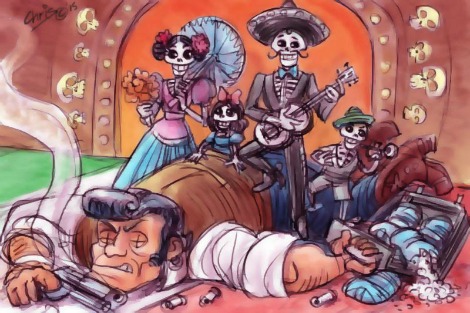
INTERNATIONAL
- Garry Westmore
- 20 October 2015
3 Comments
Hollywood need not deny the violence cartels have perpetrated upon one another, members of the public, police and military. But to almost exclusively engage with Mexico in terms of this violence provides a badly limited perspective on that country. Hollywood does something similar when it goes to Africa and tells only stories of warlords and child soldiers. To do so brings nothing to the conversation, but merely exploits tragic situations for the benefit of laughs and action.
READ MORE 
-

AUSTRALIA
- Brian Matthews
- 16 October 2015
3 Comments
In the recent AFL Grand Final, the performance of Aboriginal footballer Cyril Rioli seemed to be not much short of magic. Well, perhaps the spirit world did make a contribution. In 1844, a great throng of clans was camped on the site of what became the MCG. Perhaps, 170 years later, Aboriginal footballers, running down the race for the first time and steeling themselves for the noise, the space, the tension, find instead a great sense of intimacy as their feet hit the grass of the oval.
READ MORE 
-
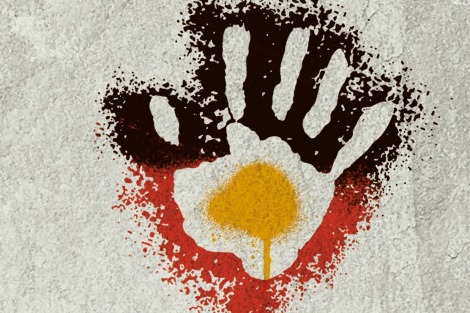
AUSTRALIA
- Frank Brennan
- 16 October 2015
2 Comments
I acknowledge those Aborigines and Torres Strait Islanders who insist that they have never ceded their sovereignty to the rest of us. I join with those Aborigines and Torres Strait Islanders who hope for better days when they are recognised in the Australian Constitution. As an advocate for modest constitutional recognition for Indigenous Australians, I respect those Aborigines and Torres Strait Islanders who question the utility of such recognition. But I do take heart from President Obama's line in his Charleston eulogy for the late Reverend Clementa C. Pinckney: 'Justice grows out of recognition'.
READ MORE